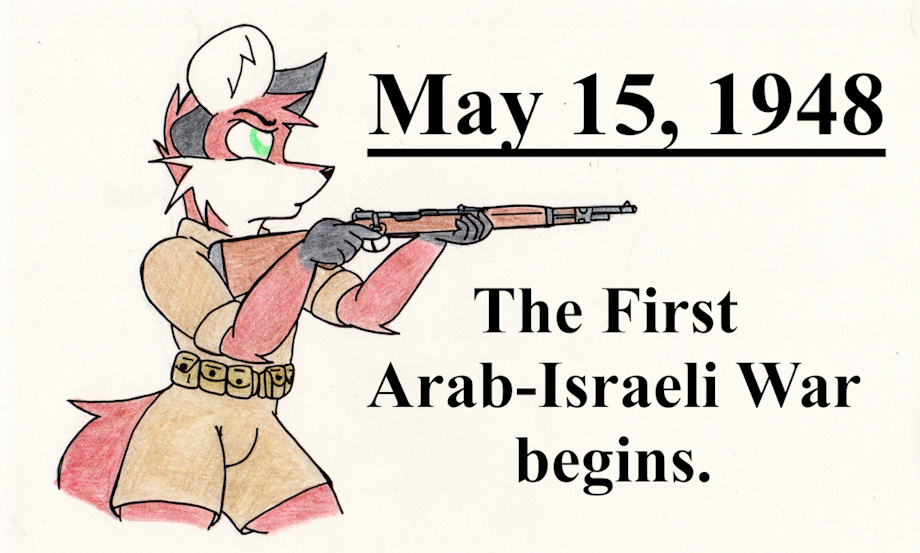On May 15, 1948, the 1948 Arab-Israeli War, also known as the First Arab-Israeli War, begins. Starting in the late 1800s, a movement calling for the creation of an independent Jewish state had developed in Europe in reaction to antisemitism and the persecution of Jewish individuals and communities. Known as Zionism, the movement focused on the Jewish people returning to Jerusalem, then part of the Ottoman Empire. Following the conclusion of World War I, the region in question became the British Mandate of Palestine. With the rise of multiple totalitarian regimes and growing persecution of Jews, many joined in the movement to settle Palestine before and during World War II. Following the end of the war, the newly-formed United Nations (UN) was brought in to determine a solution to growing tensions between the Jewish and Arab populations of Palestine. The proposed solution created two separate states, a Jewish Palestine and an Arab Palestine, and a separate Jerusalem under international control with Britain relinquishing control of the territory. While this proposal was supported by the Jewish population and by the UN, it was rejected by the Arabs.
At midnight on May 14, 1948, the plan went into effect and Israel declared its independence. In immediate reaction on May 15, the countries of Iraq, Syria, Transjordan, and Egypt invaded the newly-declared Israel. The fighting between the Israelis and the Arab forces would last until March 10, 1949. Israel emerged as the victor, maintaining control of its entire territory while also gaining approximately 60% of the territory allotted to the Arabs in the UN resolution ending the British Mandate of Palestine. In total, Israel now possessed 78% of the former mandate. Egypt took possession of the Gaza Strip while Transjordan took possession of the West Bank. Israeli casualties totaled 6,373 soldiers and civilians killed while Arab casualties are estimated at between 6,700 to 20,000 soldiers and civilians killed (exact numbers are difficult to verify with varying casualty estimates). Over 700,000 Palestinian Arabs were displaced in the course of the war, living in refugee camps in other Arab states. Most Arab states refused to grant them citizenship and continue this policy with their descendants, leaving 1.4 million living in refugee camps today. This has also placed the question of the right-to-return as a major issue between Israel and the Arab states to this day. Jewish populations in the Middle East were also displaced as a result of the war with ~700,000 Jews fleeing or removed from other Arab states in the years that followed.
Keywords
male
1,259,188,
fox
260,419,
anthro
241,627,
vulpine
38,225,
red fox
9,662,
egypt
1,398,
this day in history
248,
tdih
244,
israel
38,
palestine
21,
syria
13,
iraq
11,
1948
3,
may 15
1,
arab israeli war
1,
first arab israeli war
1,
transjordan
1
Details
Published:
5 years, 9 months ago
16 May 2020 05:34 CEST
Initial: 8096501556bbce179e5669631fd26198
Full Size: 47bca6fc3cad0a7812ec3d8c00374a94
Large: f1dc5ae1c9fa16583c509d3d8a7cb162
Small: 7941fcddcf9a1401d4dec8c5e87b798c
Stats
38 views
7 favorites
2 comments
